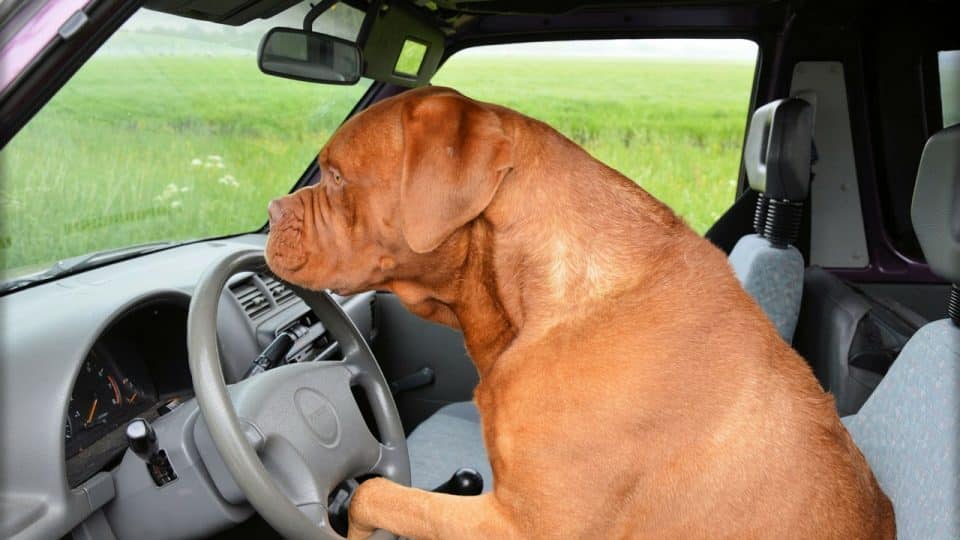Bear, a beautiful, friendly labradoodle, is housebroken, gets along with other dogs, and is fun to take on walks: in short, she’s the perfect companion. Bear has just one [small] problem: motion sickness. It happens on longer road trips in particular. For instance, on a car ride from Seattle to Vancouver, Washington, her little pooch stomach was less than happy, and she threw up. Everywhere.
Why do dogs get car sick?
Car sickness is a common problem for dogs, and most pet parents and dog sitters will face it at one time or another. Puppies are more likely to suffer from car sickness because their vestibular system, which helps maintain equilibrium, isn’t yet fully developed. Other causes may include a history of trouble with travel, or possible traumatic experiences associated with travel. If your dog has a case of canine motion sickness, it’s best to check with your vet to help determine the cause.
Symptoms of car sickness in dogs
Not all dogs will actually vomit in the car, though that does happen, as with Bear. Common symptoms of motion sickness in dogs include:
- Excessive licking of lips
- Excessive drooling
- Yawning
- Whining
- Crying
- Immobility
- Vomiting
How to help: practice and prevention
There are a lot of solutions for helping alleviate motion sickness in dogs, and some are very simple. Among them:
- Take frequent short trips to get your dog accustomed to traveling in a vehicle
- Crack the windows for fresh air
- Make sure your dog can see out of the window
- Feed your dog less before a car trip
- Take frequent breaks
How to help: supplements and safety gear
Aside from the best practices above, certain products may help alleviate your dog’s motion sickness. These include:
- Keeping your dog safe and comfy with a harness: this one is by far the most effective, according to all research
- Riding in a carrier: some dogs prefer this to a harness, especially smaller breeds
- Using anti-anxiety measures like a calming collar or pressure wrap
- Giving dramamine: ok for most adult dogs, but double-check with your vet for dosage recommendations
- Giving Cerenia, a new motion sickness medication designed specifically for dogs and cats. By prescription only.
- Feeding ginger, which has proven anti-nausea effects. Some pet stores offer ginger capsules, and you can also try treats like these grain-free pumpkin-ginger goodies. Puppies under 16 pounds can safely take 250-milligrams or less of ginger, while puppies over 16 pounds can usually handle up to 500 milligrams of ginger. In fact, eating ginger treats might create a positive association with the car, and help dogs with anxiety-related motion sickness.
Car sickness happens for dogs as well as humans. When nothing else works, the best remedy of all is simply to take a break from the car. If you have to use your car leave your dog with a local Rover.com sitter who offers dog boarding. Have any tips and tricks for dealing with canine motion sickness? We’d love to hear them!
The information provided in this article is not a substitute for professional veterinary help.



